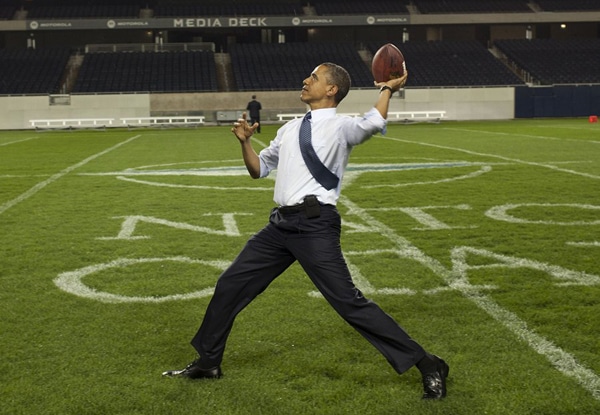
Burma, before; Iran and Cuba, now. In his relations with these countries, at the end of his second term, Obama is defining a new foreign policy. In his own words, the Obama Doctrine means: ‘We will engage, but we will preserve our capabilities’. That is to say, diplomacy first, but backed up by force, whether economic or military, and with US national (global) interests in mind. After meeting Raul Castro in Panama he was explicit in what we have already noted: he does not seek regime change but transformation through closer relations, by engaging diplomatically, economically and socially.
In the US strategic community there is an obsession with Doctrines: Nixon, Kissinger, Carter, Reagan, Bush, etc. In his interview to the New York Times, the President accepted that there is now an Obama Doctrine. But the expression had already been used by David Sanger in the same paper in 2012 to define a very different policy towards Iran and Syria that aimed to arm the Syrian rebels against the El Assad regime and the Israelis with bunker-busters in the event they were to attack Iran’s nuclear installations. In fact, that was the policy towards Syria defended by the then Secretary of State, Hillary Clinton. And with some justification, since none but the rebels were capable of repulsing ISIS/Daesh, the Islamic State. But the policy was rejected by the White House.
The premature 2009 Nobel Peace Prize winner seems to be allergic to the use of military force, even though he has had to in the course of his presidency. His attitude reflects a change in an American society that, after the experiences of Afghanistan and Iraq, is now tired of war. This is almost a novelty in a country that in its 239 years of existence has been at war for 214 of them. Obama, as he promised, has brought US troops back from Iraq, but perhaps too hastily. If the invasion ordered by Bush Jr. was a mistake, with no justification and with negative effects that multiplied when Paul Bremer dissolved the Iraqi State and army, Obama’s orderly withdrawal also had adverse consequences as it allowed the Baghdad government to open up its prisons –where so many jihadists groups were formed–, releasing the future military and terrorist cadres of ISIS. Perhaps that lesson underlies Obama’s decision to prolong the presence of US troops in Afghanistan, where the ‘Islamic State’ brand arrived last week with a trade-mark suicide attack.
After the Libyan experience –another mismanaged war, which destroyed a State, if it could be called that, without establishing another one in its place–, Obama was only too hasty in wanting to bomb Syria in September 2013 when he learned the El Assad regime had used chemical weapons against both rebels and civilians, thereby crossing a ‘red line’. But similarly to David Cameron’s experience with the House of Commons, Obama realised he would have insufficient support in the Senate, while Russia helped move towards a diplomatic solution. If a year later he finally decided, under an international coalition, to order the bombing of ISIS positions in Syria and Iraq, it was only because of media pressure after videos were released showing the beheading of two US citizens.
Walter Russell Mead, in a famous 2001 book, identified four schools in US foreign policy: Hamiltonians, who favour a close alliance between government and big business in external action; Wilsonians, who are moralistic and idealistic; Jeffersonians, who are more isolationist and stress the preservation of democracy at home; and Jacksonians, who are realists whose priority is safety and prosperity at home and who only advocate retaliation in the event of attack. Bush was a mixture of the first two. Obama, despite having a Wilsonian bent, is primarily Jacksonian. He is a realist.
Obama has reiterated that many conflicts, including the threat posed by ISIS or by Russia in the Ukraine, do not have a military solution, although the military option might play a role in the solution. But not in Cuba, though. Furthermore, the current Obama Doctrine seeks a diplomatic solution to the Iranian nuclear issue, and even more: as the Supreme Leader, Ali Khamenei, has said, an agreement could lead to talks ‘on other issues’.
Obama is right when he says that the Muslims themselves, and especially the Arabs, must guarantee their own safety but that their biggest problem is inherent to their own regimes and societies: ‘dissatisfaction within their own countries’. This is true despite the failure –except in Tunisia– of the Arab Spring –with which the West failed to engage– and the fact that realism has led the Obama Administration to restore good relations with General Sisi in Egypt following his coup against the Muslim Brotherhood.
Hence, as one would expect, things are a little more complex than simply a doctrine described in a sentence or outlined in an interview. In the final stretch of his presidency, Obama is taking political risks with his diplomatic initiatives in order to build up a differentiated and constructive legacy. However, just when it is the return of diplomacy that is being discussed, it is weaponry that has also returned to many parts of the world. That is something that should not be forgotten.
See also: Obama on Iran and his View of the World. Inteview with Thomas L. Friedman. 5/4/2015 (New York Times).


